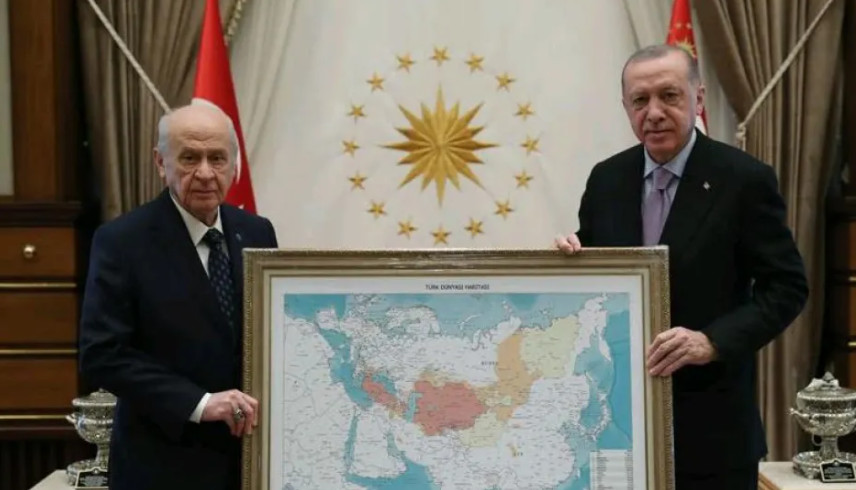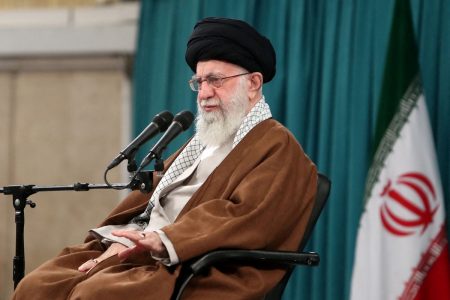Over the years, Turkish President Recep Tayyip Erdogan has repeatedly made the hand sign of the ultra-nationalist, neo-fascist, and Islamist ‘Grey Wolves’, a paramilitary branch of his ruling coalition partner Devlet Bahçeli’s Nationalist Movement Party (MHP).
Erdogan’s re-election as president in the general elections scheduled for June, 2023, hinges on the MHP’s full support
The Grey Wolves for decades have acted as the long arm of Turkey’s government and deep state.
Greeks remember them best for their involvement in the 11 August, 1994 murder of unarmed 24-year-old Greek Cypriot Tasos Isaak in the UN-monitored buffer zone between the free part of the Republic of Cyprus and the Turkish-occupied north of the island, at the end of a protest journey that began with 200 motorcylists at Berlin’s Brandenburg Gate and ended with 7,000 motorcyclists who joined up with them on the island.
Three days after Isaak was beaten to death by Grey Wolves, on the day of his funeral, which coincided with the anniversary of the second Turkish invasion of Cyprus, 26-year-old Greek Cypriot Solomos Solomou was shot dead on a flagpole in the buffer zone while trying to take down a Turkish flag after a major clash between the Grey Wolves and the Greek Cypriots who had gone to the buffer zone to lay flowers where Isaak was killed.
The Grey Wolves enjoy expansive influence in Turkish-occupied Cyprus.
The Grey Wolves made news yesterday when they tweeted messages in Greek threatening Greece and presenting maps showing the Aegean islands and the island of Crete, which is home to the geostrategically hugely important US naval and air base at Souda Bay, as Turkish territory.
“We presented to our leader [Bahceli] a map which we prepared, cognisant of the power of the Blue Homeland [which claims Greek islands, territorial waters, and large chunks of Greece’s maritime zones (EEZs) for Turkey], and of the promotion of our beloved homeland’s infiniteness, where the glorious Turkish flag has waved for hundreds of years, and it shows the borderline of the national consciousness of our islands, which Greece expropriated,” one tweet read.
Bahceli’s role: ratcheting up nationalist fervour at home, provoking Greece
Though Erdogan himself has unleashed strong attacks against Greece and Prime Minister Kyriakos Mitsotakis, Bahceli is able to go much further in his far-right nationalist rhetoric than the Turkish president’s institutional role permits, but the basic expansionist ideology, revanchism, and territorial claims against Greece are almost identical, and a substantial segment of both parties’ pools of voters (Bahceli’s almost entirely) embrace it.
Some analysts believe the two party leaders’ common aim is to maintain a politically fruitful polarisation in Turkish society through which they may reap benefits at the polls.
Bahceli reminds Greeks that they were thrown into the Aegean when Kemal Atatutrk burned down the mostly Greek cosmopolitan city of Smyrna (Izmir) during the disastrous Asia Minor War, and he repeatedly presents claims that over 100 Greek islands and rock islets are not really Greek, and that their sovereignty can be disputed in various ways, including Erdogan’s now constant demands for demilitarisation of a number of Greek islands of the Eastern Aegean.



